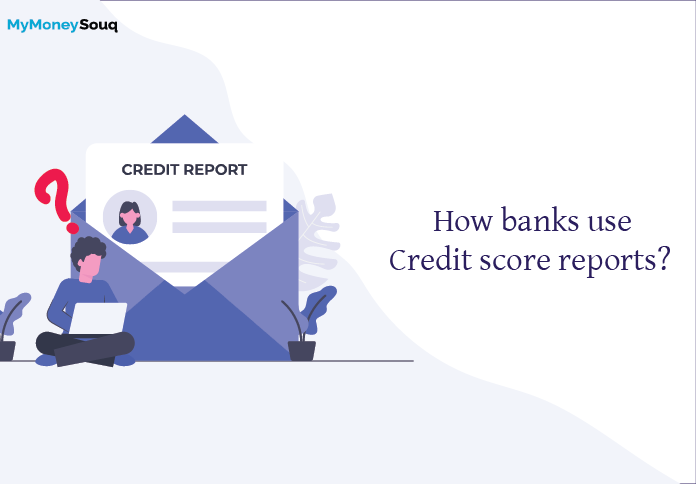When you apply for a new or additional loan or credit card, banks use credit score as a base to approve your application. Credit score report helps in identifying the potential credit risk of a borrower.
The credit score is calculated based on the information shared by different financial institutions. Credit score measures the credit risk of the applicant. Higher the credit score lower is the credit risk to the bank.
Along with a credit score report, banks also use the information that is provided in the application received for a bank product like loan or credit card. This information includes data such as income of the individual, residential address with number of years living in that address, previous banks credit information and other details.
Check Here: How to improve Credit Score?
Banks use credit score reports to find out the below details.
- Payment history of the applicant
- Total outstanding debt
- Length of credit history
- Different types of credits used
- Multiple accounts
1. Payment history of the applicant
Banks have the first right to get paid because they have issued the credit to borrowers. Making payment on time is an important factor that banks consider. Banks do not lend money to borrowers who do not have the commitment to repay the debt.
Factors such as late payments, loan default, bankruptcy, missed payments and other red flags are accounted for in the payment history of the borrower. This negative information stays on the credit report for a period of seven years or sometimes it may remain up to 10 years. You may get your loan approved but for a small amount with a higher rate of interest.
2. Total Outstanding Debt
Total outstanding debt is another factor that banks consider. The lesser debt you have, the greater chances of getting credit. If you have a large debt, banks consider that you will not be able to pay the amount on time.
Total outstanding debt includes credit taken from different banks. Banks can get loans taken from different lenders, amount of loan, tenure of loans and other details.
Check Here: What are the four different types of Debts?
3. Length of Credit History
Banks consider the length of credit history and determine how responsibly you’re using credit. Based on that they approve credit applications. Banks look at how frequently you use your credit card.
It will give details about how long each account has been opened, whether bill’s are paid on time, types of credit accounts, Outstanding balance, number of recent credit enquiries and amount of available credit used. It contains information on bankruptcies, judgments, liens and other details.
Check Here: Reasons why your Credit Score dropped
4. Different types of Credits used
Different types of credits such as credit cards, car loans, home loans, mortgages and various other types of credits banks get the information of the loan applicant. From the bank’s perspective, a variety of loans and credit cards are good but borrowers should make regular payments.
The borrower track record should show reliability about repayment. If a borrower has a variety of credit and does not have a good track of repayment of credit then banks will not approve the borrower’s applications.
5. Multiple Accounts
Good credit history has a good credit rating. Banks look for borrowers with multiple new accounts which have been opened to get credit.
When a borrower opens multiple accounts for new credit cards and loans banks have a question, Why does the borrower need so much credit? They will question the ability of repayment and hesitate to offer credit. In a short period of time applying for new loans and credit cards will hurt credit score and banks hesitate to offer credit.
Conclusion
Credit score plays an important role in understanding the qualification of a borrower to approve his credit. Apart from this amount of income you earn, the balance in your bank account, length of time you are employed are also reviewed by the bank. Banks see the track record with the help of credit score and approve new credit to the borrower.
About the author
Vinay Kumar Goguru is a finance professional with more than 8 years of diverse experience as a researcher, instructor and Industry work experience with both public and private entities. Prior to MyMoneySouq, he spent 6 years in Berkadia, It's a commercial mortgage banking company. He has a "Doctoral Degree in Commerce" and two master's degrees with a specialization in Finance, one as Master of Commerce and other as Master of Business Administration. He has written several articles on personal finance, published by different International journals. He loves traveling, reading and writing is his passion. He has a dream of writing a book on his favorite finance topics.


